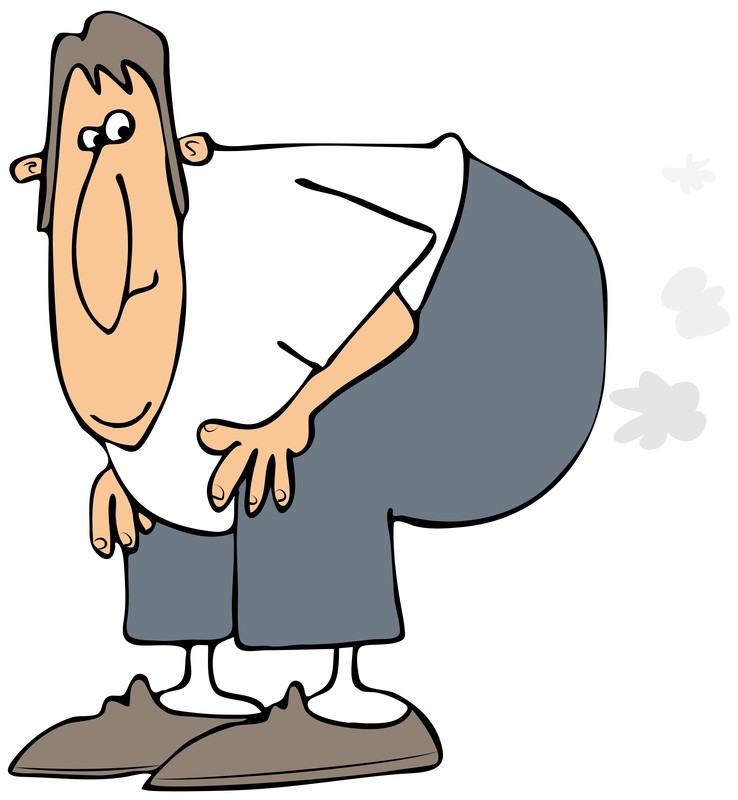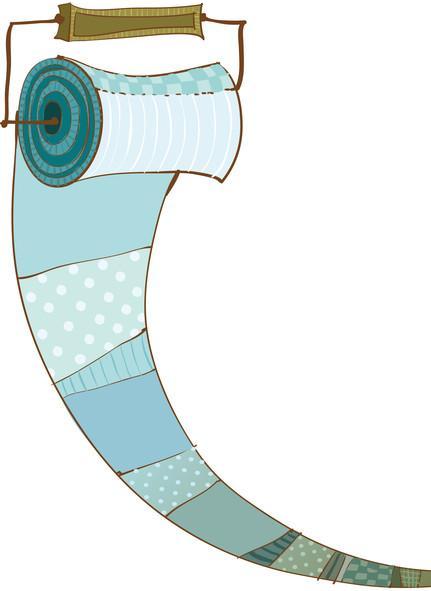This site, including all original art and content, is TM, ®, and/or ©, 2014. All rights reserved.
.
Why Do We Fart?
Although flatulence – or the passing of gas - may seem embarrassing, it's one of the most common bodily functions. In fact, the word "fart" is one of the oldest words in the English language! Intestinal gas is totally normal, and it's very rare for farting to be a sign that something is wrong in the body.
Gas can be caused by trapped air, which come from many sources. When you eat, you don't swallow just your food. You also swallow air, which contains gases like nitrogen and oxygen. Air can also be caused by gas seeping into our intestines from our blood.
Your body also makes gas when food is broken down in the large intestine, including hydrogen, carbon dioxide (the gas that makes soda fizzy), and methane. Some gas is produced by chemical reactions in our intestines, or bacteria living in our guts.
Small amounts of these gases travel through your digestive system, and somehow they have to escape, so they come out as farts – or gas! A typical fart is composed of about 59 percent nitrogen, 21 percent hydrogen, 9 percent carbon dioxide, 7 percent methane and 4 percent oxygen, and 1% hydrogen sulfide. Even if you clench your butt all day to hold it in (don't do that), gas eventually escapes once you relax, which is why often times the bed seems more like an orchestra pit with a lot of tooting going on!
Excessive gas can be caused by certain medications and health conditions. Also, everyone's body reacts differently to certain types of food — some people have no trouble digesting milk products, while other people suffer excessive gas from it. To figure out what's triggering your flatulence, pay attention to the foods you eat, and keep a diary to link symptoms of excessive gas to your diet.
Why Do Farts Smell Bad?
The one percent of a fart that is composed of hydrogen sulfide gas and mercaptans contains sulfur, and it’s the sulfur that makes farts stink. The more sulfur-rich your diet is, the worse your farts will smell. Foods that contain a lot of sulfur include beans, cabbage, onions, cheese, soda, fried foods and eggs!
Why Farts Make A Sound
Farts make a sound when they escape due to the vibrations of the rectum. The loudness may vary depending on how much pressure is behind the gas, as well as the tightness of the sphincter muscles.
Should You Hold In Farts?
Doctors disagree on whether or not holding in farts is bad for your health. Some experts think that farts are a natural part of your digestive system, so holding them in won't harm you. Others think that at best, holding them in can cause gas, bloating, and other uncomfortable symptoms, and at worst, repressing gas can cause hemorrhoids or a distended bowel.
More Fart Facts
> Most farts are flammable, because of the methane and hydrogen they contain.
> At the time of creation a fart is the temperature of 98.6 degrees Fahrenheit, or 37 degrees Celsius.
> A fart has reached the speed of 10 feet per second. This is 3.05 meters per second.
> One person can produces about 0.5 liters of farts a day. This is almost 0.13 gallon.
> Farts can caused by E. coli, bacteria that is most commonly found in the intestines. While there are different types of E. coli, most aren’t harmfull and only cause people to fart.
> If you have a lot of gas after eating dairy products, your body may have a difficult time digesting the natural sugar, lactose.
> Men and woman will fart equally, although few woman will ever admit to it!
Prevention Is The Best Cure
Here's some prevention tips for living flatulence free! For natural remedies, please review the next section, "Fart Remedies".
> Don’t chew gum. (You’ll take in air.)
> Avoid fizzy drinks.
> Eat slowly.
> Chew food thoroughly.
> Chew with your mouth closed.
> Avoid gassy foods.
> Soak beans before you cook them.
> Eat more fiber.
> Make sure you exercise.
The Constipation Express: Everything You Need To Be A Pooper
FART ZONE
Poops
and
Bladders
FART ZONE
Fart Facts & Glossary


